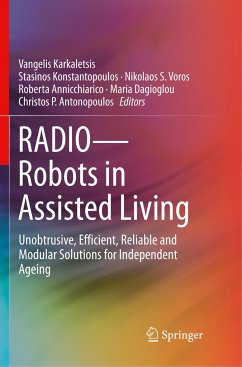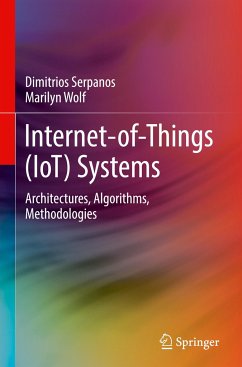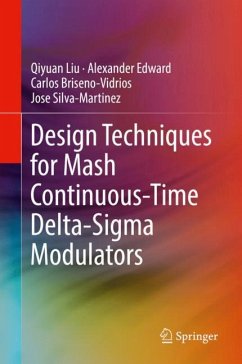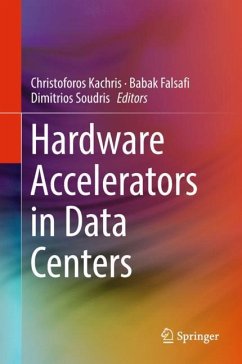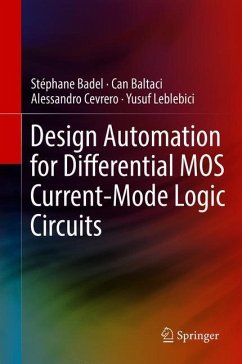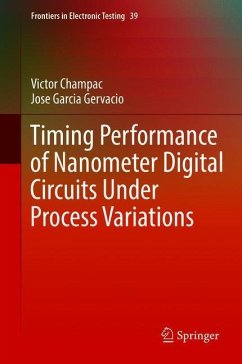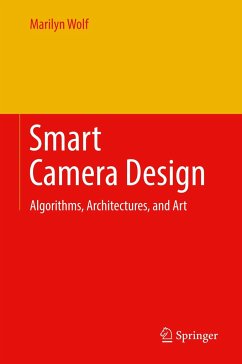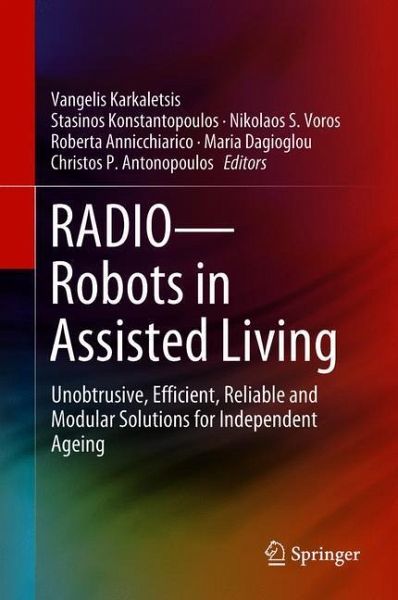
Gebundenes Buch
RADIO--Robots in Assisted Living
Unobtrusive, Efficient, Reliable and Modular Solutions for Independent Ageing
Herausgegeben: Karkaletsis, Vangelis; Konstantopoulos, Stasinos; Voros, Nikolaos S.; Annicchiarico, Roberta; Dagioglou, Maria; Antonopoulos, Christos P.
Versandkostenfrei!
Versandfertig in 6-10 Tagen
Weitere Ausgaben:

PAYBACK Punkte
42 °P sammeln!




This book describes a unique approach to bring robotic technology into elders' daily lives. Low cost components and low cost robotic assistants are effectively combined to offer high quality services to elders and people in need. The book presents in a comprehensive way how technology can be used for developing a new healthcare paradigm where high quality services are offered at home, thus reducing the ever-increasing hospitalization cost of the elders and the people with chronic diseases.
Dr. Vangelis Karkaletsis is Research Director and Head of the Software and Knowledge Engineering Lab (SKEL), Institute of Informatics and Telecommunications, NCSR "Demokritos". His research interests are in the areas of big data management, content analysis, natural language interfaces, ontology engineering, and personalization. He has organized international summer schools, workshops and conferences. He is currently Director of the MSc program on Data Science, and responsible for the Institute educational activities. He is co-founder of the spin-off company 'i-sieve Technologies' that exploited SKEL research work on on-line content analysis. He is currently involved in the founding of the new spin-off company NewSum that exploits SKEL technology on multilingual and multi-document summarization. Dr Karkaletsis coordinated the Radio project. Dr. Stasinos Konstantopoulos holds an MEng in Computer Engineering (Univ. Patras, Greece, 1997), an MScin Artificial Intelligence (Edinburgh Univ., U.K., 1998), and a PhD on machine learning and computational logic (Groningen Univ., the Netherlands, 2003). He leads Roboskel, the robotics activity of the Institute of Informatics and Telecommunications, NCSR "Demokritos". His main research interests are artificial intelligence and computational logic, and their applications to semantic modelling, data management, and robot perception. He has published several papers in these fields and is or has been on the program and organizing committees of various international conferences, including chairing the Programme Committee of the 6th Hellenic AI Conference (SETN 2010), Athens, 2010. Dr Konstantopoulos was the scientific manager of the Radio project. Dr. Nikolaos S. Voros received his Diploma in Computer and Informatics Engineering, in 1996, and his PhD degree, in 2001, from University of Patras, Greece. His research interests fall in the area of embedded systemdesign, and include specification techniques for complex embedded telecommunication systems, hardware-software co-design, formal refinement techniques, and reuse practices. Currently, Dr Voros is Assistant Professor at Technological Institute of Western Greece, department of Computer and Informatics Engineering where he is leading the Embedded Systems Lab. He was the General Chair of the IEEE Computer Society Annual Symposium on VLSI, which took place in Kefalonia, Greece on July 2010, Program Co-Chair for 24th International Conference on Field Programmable Logic and Applications (FPL 2014), which will take place at Technical University of Munich on September 2nd - 4th, 2014 and General Chair of the 14th International Symposium on Applied Reconfigurable Computing (ARC 2018) held on May 2nd - 4th, Santorini, Greece, 2018. He has served as Associate Editor at IEEE Consumer Electronic Magazine, IEEE Transactions on Nanotechnology, ACM Transactions, Transactions on Reconfigurable Technology and Systems. Roberta Annicchiarico is a geriatrician. Degree in Medicine (1994) and specialisation in Geriatrics (1998) at "La Sapienza" University of Rome; PhD in "Neurosciences, rehabilitation and behavioural sciences" (2003) at "La Sapienza" University of Rome. Since 2002, she is Medical Assistant at Fondazione Santa Lucia, Rome. She is contracted professor of Internal Medicine with focus on Geriatrics at the School of Physiotherapy since 2004 and at the School of Nursing since 2005 (University of Tor Vergata, Rome). She is teacher at the postgraduate courses on "Alzheimer's disease and Dementias", held by Fondazione Santa Lucia since 2001, and was teacher at the "European Master Degree in Preventive and Adapted Physical Activity" (2003). She has been involved in several European Projects. Her main research interests are the disability correlates of chronic diseases, and possible clinical applications of new technologies. Dr Annicchiarico was the clinical manager of the RADIO Project. Dr. Maria Dagioglou studied Electrical and Computer Engineering (Democritus University of Thrace, Xanthi, Greece, 2007). She also holds a MSc in Biomedical Engineering (TU Delft, the Netherlands, 2010). During her M.Sc. thesis, she collaborated with the Department of Neuroscience of Erasmus Medical Centre. She was then employed as a Marie Curie Fellow (2010-2013, ITN "C7: Cerebellar-Cortical Control: Cells, Circuits, Computation, and Clinic"), in the Predictive Sensory Motor (PRISM) Lab of the School of Psychology in the University of Birmingham, UK., where she studied on human motor control and learning. She received her PhD in Psychology in July 2014. Since April 2014, she is a research associate at NCSR-D working on autonomous robotic navigation and human robot interaction. Dr Dagioglou was the biomedical engineer of the Radio project, coordinating work between the clinical partners and the technical partners. Dr. Christos P. Antonopoulos received his Diploma and PhD at Electrical Engineering and Computer Technology from the Department of Electrical Engineering and Computer Technology, University of Patras Greece in 2002 and 2008 respectively. From 2002, he has been involved in more than 10 European projects (FP5,6,7 and Horizon 2020) and more than 5 Greek National research projects holding key positions both technical as well as managerial. He has published high number (>65) of research papers and 13 book chapters in international journals and conferences which have received over 450 citations while he has served as editor to two Springer books. From 2002 he has worked as adjunct assistant professor at the Technological Institute of Patras, while from 2010 he is working as adjunct assistant professor at the Computer and Informatics Engineering Department, Technological Educational Institute of Western Greece (Antirio). His main research interests lay in the areas ofCyberPhysical Systems, Internet of Things, Ambient Assisted Living Platforms. More specifically his technical expertise lay in the fields of Wireless Networks, Network Communication Protocols, Network Simulation, Performance Evaluation, Embedded Software, Sensor Networks, Wireless Broadband Access Networks, Embedded System Architecture and Programming. In Radio, Dr Antonopoulos led the work package that developed the ADL recognition methods.
Produktdetails
- Verlag: Springer / Springer International Publishing / Springer, Berlin
- Artikelnr. des Verlages: 978-3-319-92329-1
- 1st ed. 2019
- Seitenzahl: 208
- Erscheinungstermin: 1. August 2018
- Englisch
- Abmessung: 241mm x 160mm x 17mm
- Gewicht: 426g
- ISBN-13: 9783319923291
- ISBN-10: 3319923293
- Artikelnr.: 52450151
Herstellerkennzeichnung
Springer-Verlag GmbH
Tiergartenstr. 17
69121 Heidelberg
ProductSafety@springernature.com
Für dieses Produkt wurde noch keine Bewertung abgegeben. Wir würden uns sehr freuen, wenn du die erste Bewertung schreibst!
Eine Bewertung schreiben
Eine Bewertung schreiben
Andere Kunden interessierten sich für




